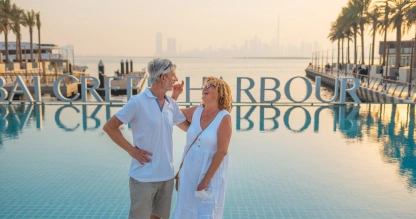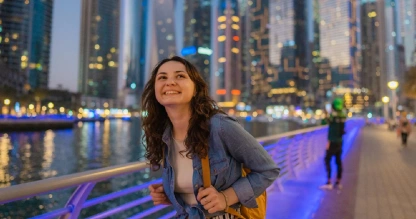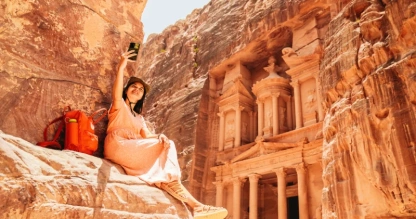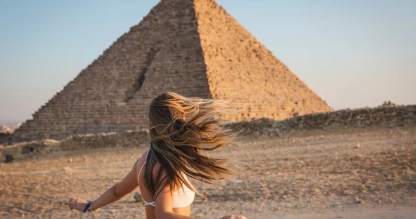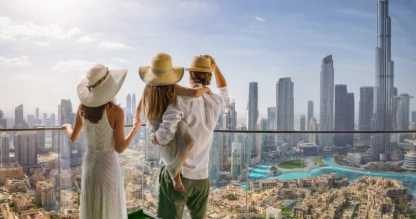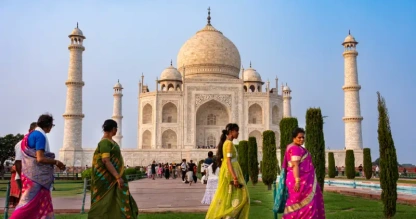
Your Guide to Dubai Spice & Gold Souks
Dubai's gold souk ranks among the world's leading jewelry trading centers. More than 350 retailers showcase striking collections of necklaces, bracelets, and earrings that leave visitors amazed by the gold's overwhelming presence.
The spice souk sits next to this wealth of gold merchants.
Vendors sell aromatic spices and fragrances from around the world, including cinnamon, ginger, and chili. These souks serve as living pieces of Dubai's history and preserve centuries-old trading traditions.
This article guides travelers through the rich history of these markets during their Dubai tours. They can learn about the tax-free gold displays and find exotic spices that have attracted merchants to Dubai's shores for generations.
A Look at Dubai’s Historic Souks
Long before Dubai's skyline filled with gleaming skyscrapers, the city's heart beat through its bustling souks. These traditional marketplaces have shaped Dubai's identity since its early days as a fishing village and trading port.
The role of souks in Dubai's trading past
Souks became Dubai's economic foundation and turned a small coastal settlement into a thriving commercial hub. These markets helped traders from India, Persia, and East Africa do business throughout the 19th and early 20th centuries. Dubai's location along the Creek made it a vital stopover for merchants traveling between these regions.
Unlike today's shopping centers, traditional souks grouped sellers by product type, which created specialized markets for goods from textiles to livestock. This setup showed the sophisticated trading systems that existed well before oil brought wealth to the region. These marketplaces also served as community hubs where news spread, relationships grew, and cultures mixed.
How the Gold and Spice Souks became iconic
The Dubai gold souk started in the 1940s with just a few traders and grew to include hundreds of specialized retailers. The market expanded after Dubai removed import duties on gold in 1966. This tax haven for precious metals trading flourished during the oil boom of the 1960s and 70s.
The Dubai spice souk grew among other markets. Merchants brought exotic spices, herbs, and incense from Iran, India, and East Africa that weren't available anywhere else in the region. The narrow, fragrant lanes became a symbol of Dubai's diverse culture and trading excellence.
Both markets gained worldwide fame in the 1980s and 90s as Dubai started promoting tourism. Their authentic character stood out against the city's modern developments and showcased Dubai's trading heritage.
Why these markets still matter today
Dubai has modernized rapidly, but souks remain vital to its culture. They give tourists authentic experiences beyond shopping malls and theme parks. Small business owners and family enterprises that are generations old still thrive here.
These markets act as living museums where traditional trading continues much as it always has.
Dubai keeps reinventing itself with futuristic projects, but the souks connect it to its pre-oil past. They remind us that Dubai's success in trade came before its oil wealth and will likely continue long after.
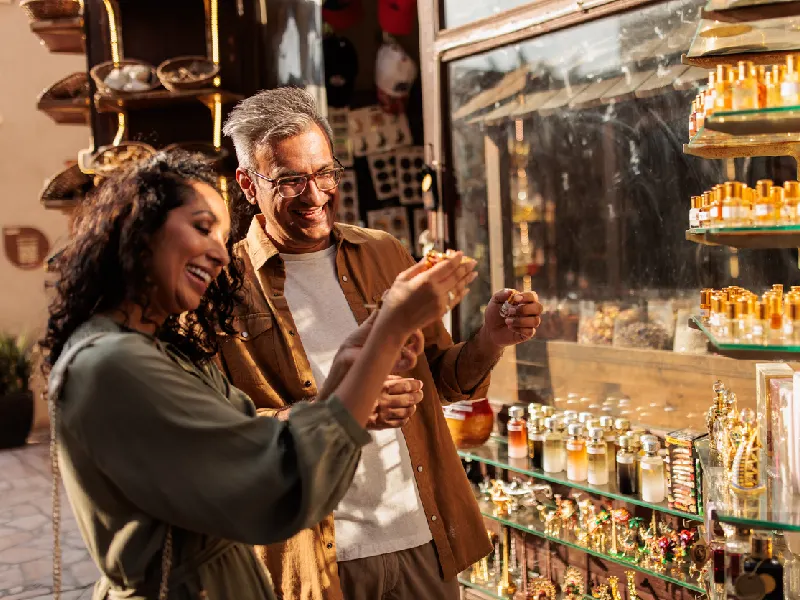
Exploring the Dubai Gold Souk
The Dubai Gold Souk's bustling lanes will overwhelm your senses with their striking display of wealth. This vibrant marketplace in Deira has more than 380 retailers that sell everything that glitters and beyond.
What you'll find: gold, silver, diamonds
The souk features an impressive collection of gold jewelry in 24K, 22K, 21K, and 18K varieties. Shoppers can find necklaces, bracelets, earrings, bangles, and engagement rings in both traditional Arabic and modern international designs. The marketplace showcases a stunning array of diamonds, sapphires, emeralds, rubies, and platinum jewelry. Yes, it is estimated that the souk holds about ten tons of gold at any time.
How pricing works and what affects it
Dubai's gold prices follow international market rates and are calculated by gram. Digital screens throughout the souk display the daily rates. The final price combines the gold's weight price (non-negotiable), making charges (craftmanship fees of 5-14%), and a 5% VAT. The prices change daily based on global gold markets.
Tips for spotting authentic jewelry
Dubai authorities hallmark all legitimate gold to guarantee authenticity. The government's strict regulation of gold purity makes the souk one of the world's safest places to buy gold. You should ask for certificates of authenticity that detail karatage and weight. Note that real gold isn't magnetic—a simple test you can do yourself.
Bargaining strategies that work
Check daily gold rates before you start shopping. Make sure to compare prices at different stores. Don't hesitate to walk away—sometimes coming back later gets you better deals.
Best times to visit and shop
The souk welcomes visitors from 9:30 AM to 9:30 PM daily, with adjusted hours of 4 PM to 9:30 PM on Fridays. You'll find smaller crowds during weekday evenings. The best deals appear during the Dubai Shopping Festival (December-January) and Dubai Summer Surprises (June-August). Many Dubai travel packages also include guided visits to the souks, making it easy to explore these vibrant markets.
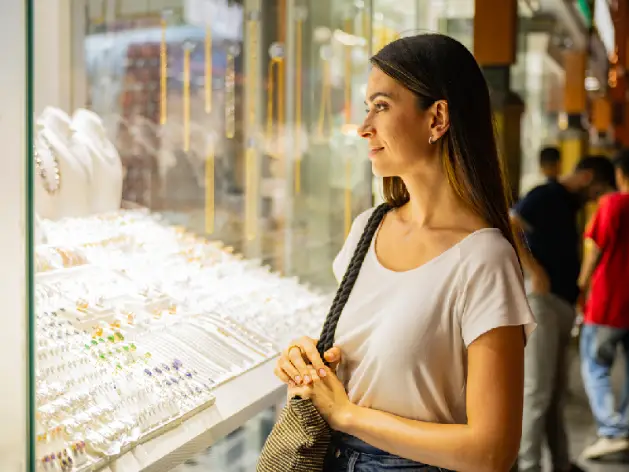
Inside the Dubai Spice Souk
A visit to the Dubai spice souk welcomes you with a symphony of aromas and a blend of colors that showcase Dubai's rich trading heritage. This sensory wonderland sits in Deira near Dubai Creek and delights your senses at every turn.
Popular spices and herbs to look for
The market displays an incredible mix of spices from around the world. You'll discover premium Iranian saffron, cardamom, cinnamon, sumac, and za'atar—a beloved Middle Eastern blend of thyme, sesame seeds, and sumac. The stalls brim with turmeric, Aleppo pepper, dried roses for tea, and special blends like ras el hanout and baharat. The souk's treasures extend beyond spices to aromatic oud perfumes, bakhoor incense, dried fruits, nuts, and essential oils.
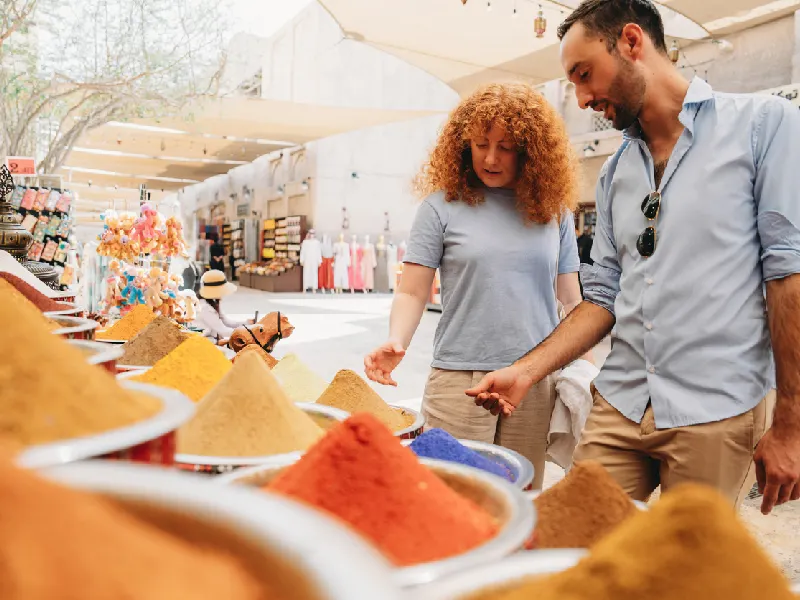
How to identify quality saffron and other goods
The precious "red gold" saffron needs a careful eye. Real saffron threads show a deep red color with slight yellow tips, and each strand has its own distinct shape. Pure saffron releases a golden color slowly in warm water, while fake versions dissolve quickly and leave artificial dyes. The authentic spice never tastes sweet, though its aroma might hint at honey and hay.
The art of haggling in the spice market
The spice souk thrives on bargaining. Start your negotiations at about half the original asking price. Take time to check different stalls and compare their prices and quality. Cash payments give you better bargaining power than credit cards.
Cultural etiquette when shopping
Start with a simple "Hello" to build rapport with vendors. Quiet conversation and avoiding public displays of affection help maintain cultural sensitivity. Feel free to sample spices, but always ask before taking photos of people or their goods.
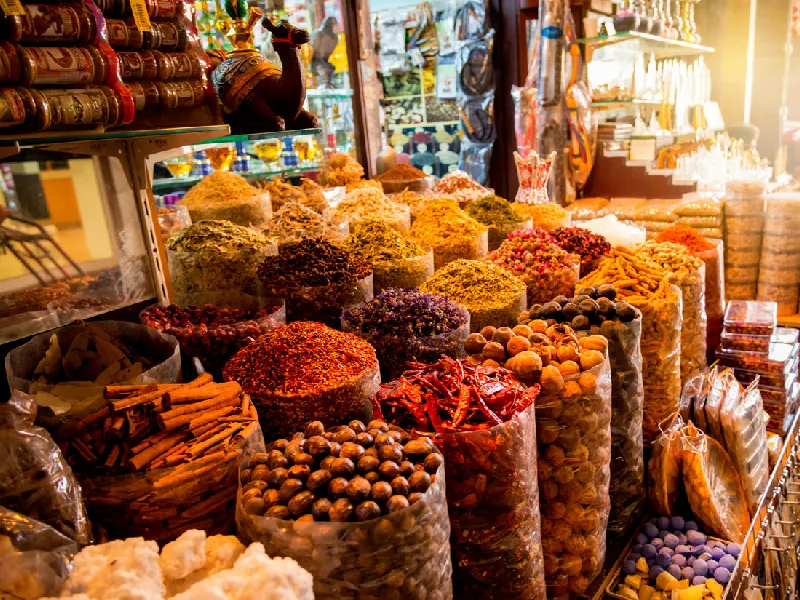
Planning Your Visit to the Souks
You'll need some preparation to make the most of Dubai's historic markets and bustling trading hubs. Let's look at everything you need to know before visiting the souks in Dubai.
What to wear and bring
These traditional areas demand modest attire. Local customs require covered shoulders and knees. Light, breathable fabrics help you stay comfortable in Dubai's heat. You'll need comfortable walking shoes, a water bottle, sunscreen, and reusable shopping bags to carry your purchases.
Cash vs card: what's accepted
The UAE embraces card payments widely, but cash remains king in the souks. Most vendors prefer cash and might add a 5% surcharge for card payments. Small denominations aid bargaining and make transactions smoother.
When to get the best experience
Vendors give more attention during weekday mornings, making it the quietest shopping time. The souks welcome visitors from 10:00 AM to 10:00 PM daily, except Fridays with a 4 PM opening. The winter months create perfect weather conditions to explore the Dubai spice souk and surrounding areas.
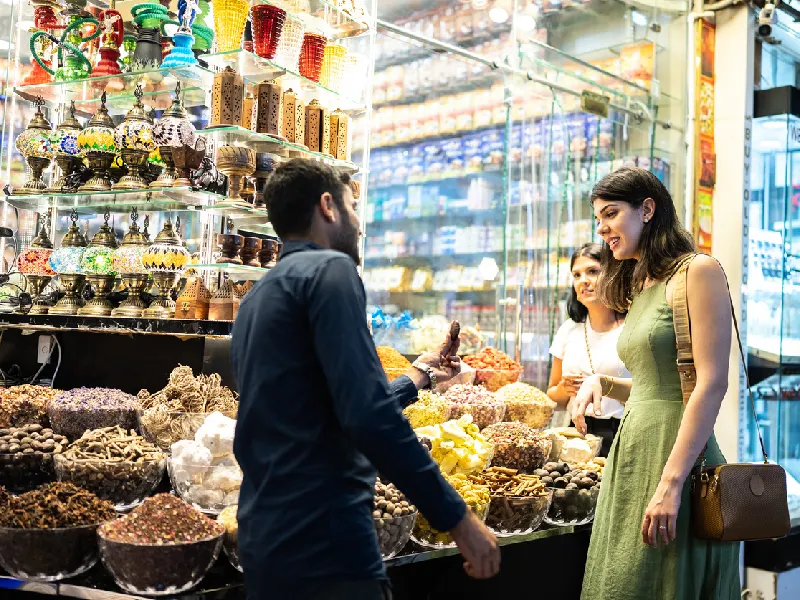
Dubai might amaze people with its architectural wonders and state-of-the-art technology. Yet these historic souks reveal the trading roots that built the emirate's global fame. Anyone who wants to understand Dubai should walk these ancient pathways where the city's heart beats to trade rhythms from long before oil changed its skyline.
FAQS
1. What is the Dubai Gold Souk famous for?
The Dubai Gold Souk is renowned for its dazzling display of gold, platinum, diamonds, and precious stones. It’s one of the world’s largest gold markets, offering everything from intricate jewelry to bullion at competitive prices.
2. Can you bargain at the Dubai Spice Souk?
Yes, bargaining is part of the experience. Vendors expect visitors to negotiate, especially for spices, herbs, teas, and souvenirs. A friendly, respectful approach often gets you a fair deal.
3. Where are the Gold and Spice Souks located?
Both souks are in Deira, Dubai’s old quarter, near Dubai Creek. Their close proximity makes it easy for visitors to explore both on the same trip.
4. What can you buy at the Dubai Spice Souk?
Visitors can find saffron, cinnamon, cloves, dried fruits, nuts, traditional teas, incense, and perfumes. The souk is also a sensory journey, with vibrant colors and aromas at every corner.
5. What is the best time to visit the Gold and Spice Souks?
The souks are open daily, usually from 10 AM to 10 PM, but evenings are the most atmospheric. Visiting later in the day offers cooler weather and livelier crowds.
Discover the wonders of Dubai with our Dubai Tours and the best of Middle East trips!

